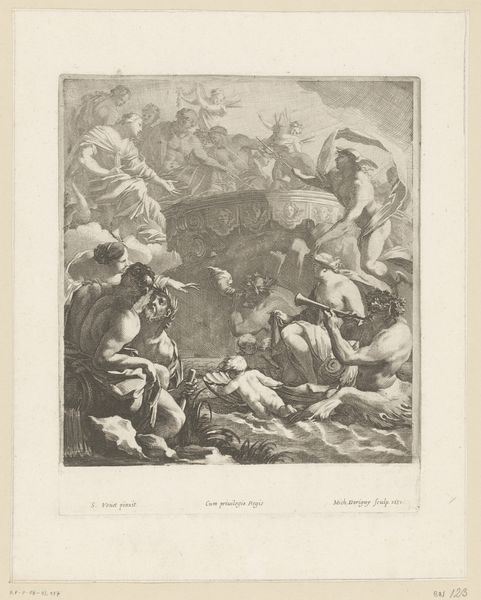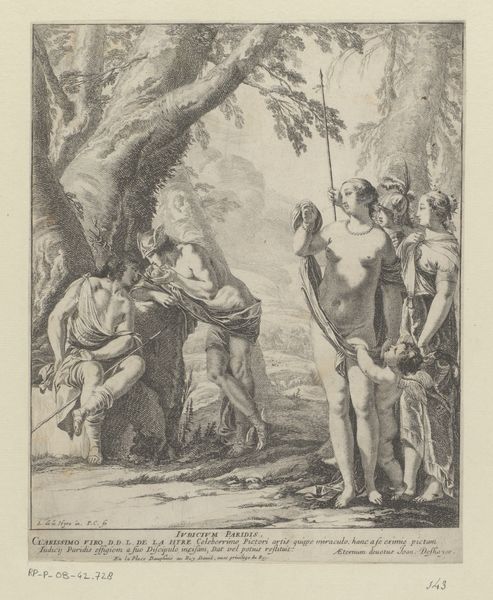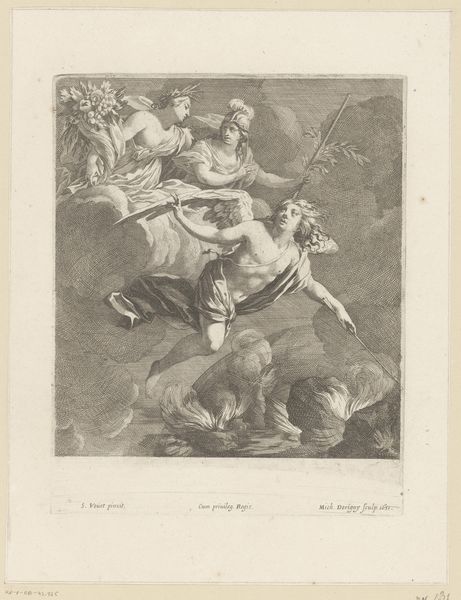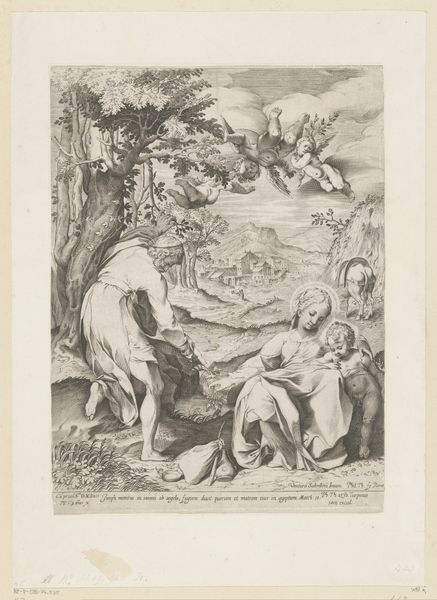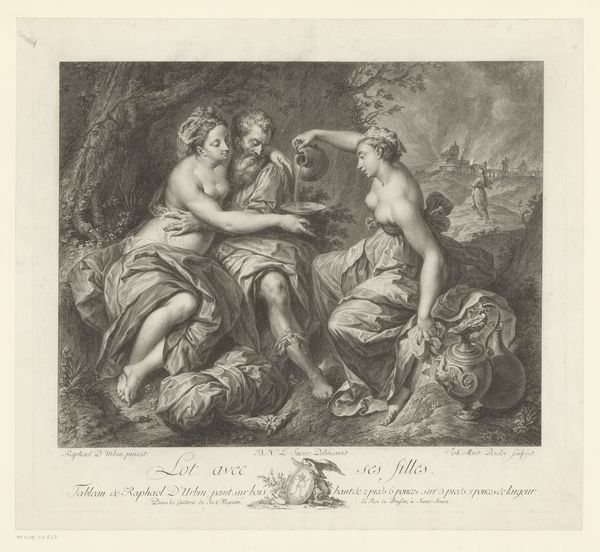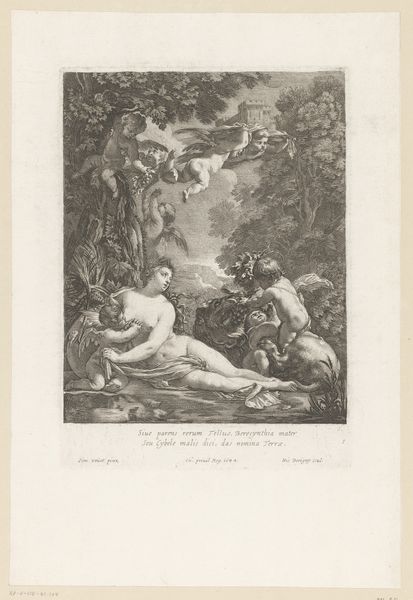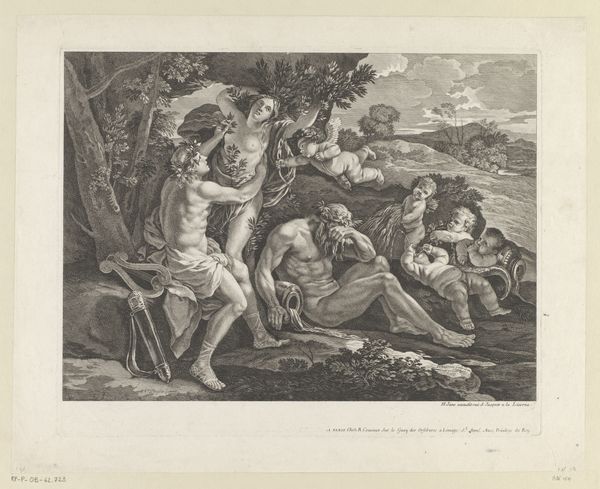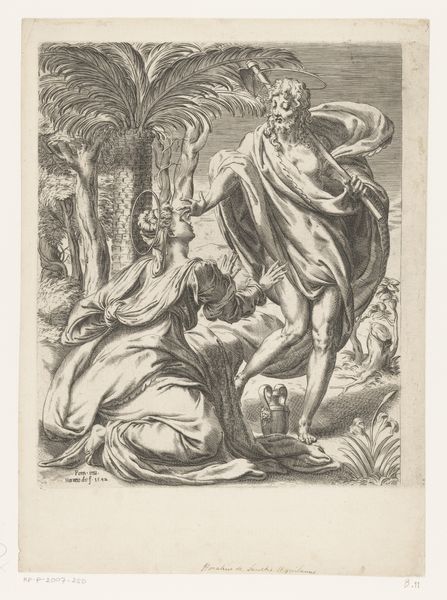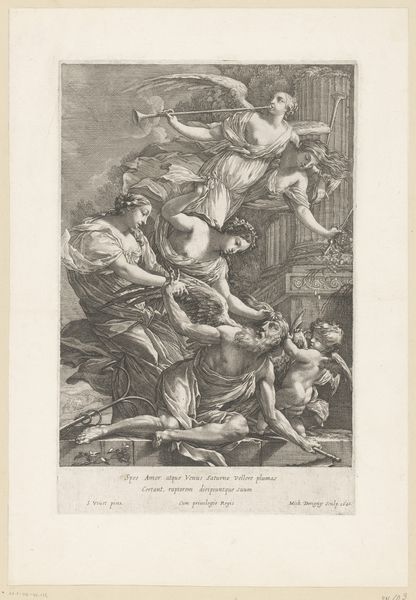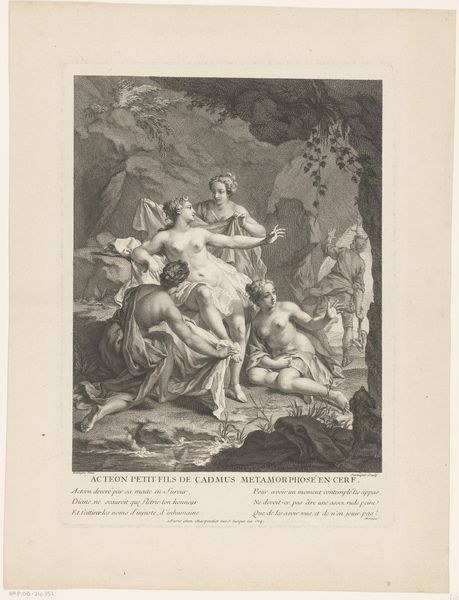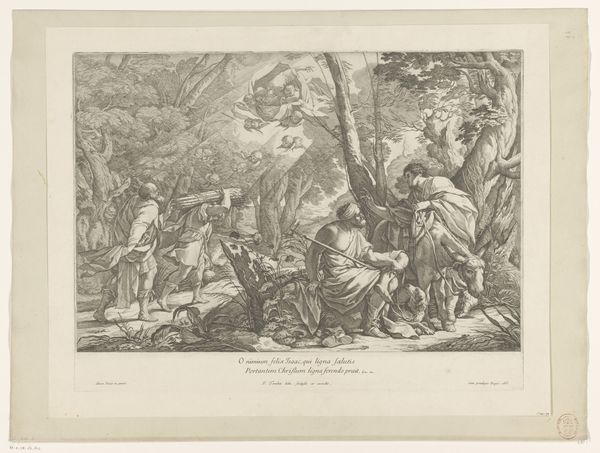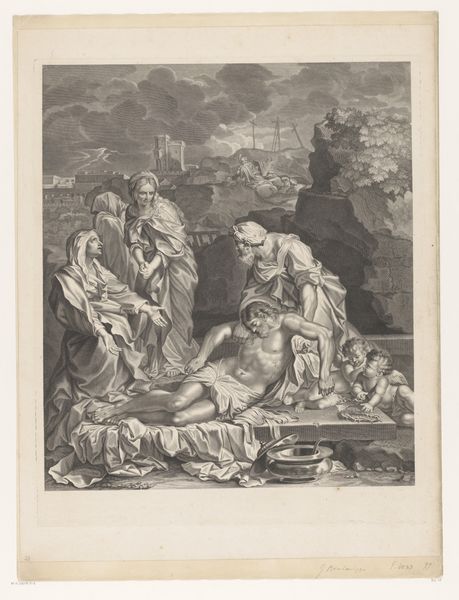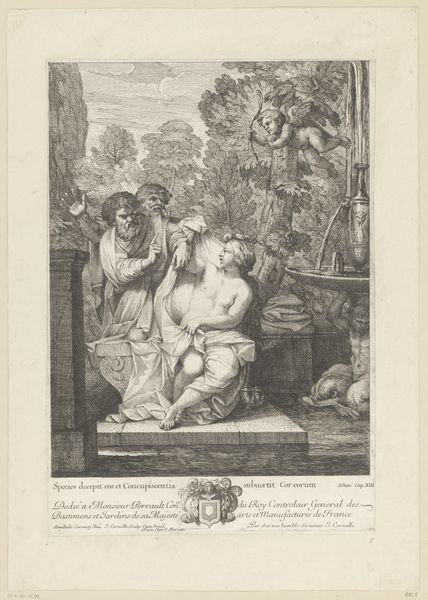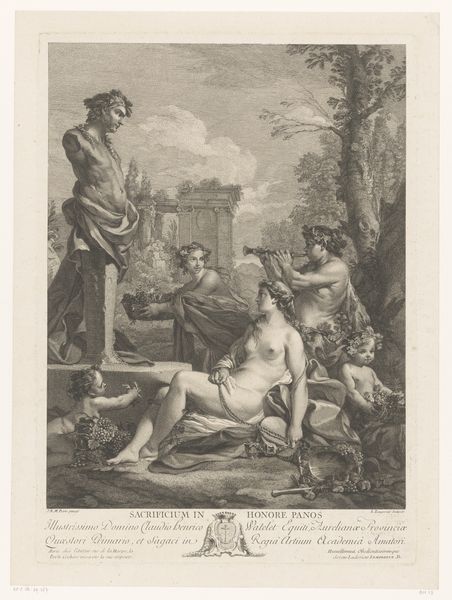
paper, engraving
#
baroque
#
figuration
#
paper
#
line
#
history-painting
#
engraving
Dimensions: height 245 mm, width 203 mm
Copyright: Rijks Museum: Open Domain
This print, "Marsyas en Apollo," was made by Michel Dorigny around 1651. Here, we witness the hubris of Marsyas, a satyr who dared to challenge Apollo, god of music, to a musical contest. The pipes lying discarded at Marsyas’s feet signify his folly, while Apollo holds his lyre, the emblem of divine harmony and order. The tale of Marsyas resonates across cultures and epochs. From ancient Greek vases to Renaissance paintings, his story serves as a potent reminder of the perils of human pride. We see echoes of this narrative in other myths, such as the story of Icarus, whose flight too close to the sun led to his downfall. In a psychoanalytic sense, Marsyas represents the untamed, instinctual side of humanity, forever striving against the rational order embodied by Apollo. Dorigny's portrayal evokes the raw emotion of this confrontation, an emotional echo across time, reminding us of the eternal struggle between order and chaos, reason and passion. The myth of Marsyas endures, reborn in art and imagination, a testament to its enduring power.
Comments
No comments
Be the first to comment and join the conversation on the ultimate creative platform.
